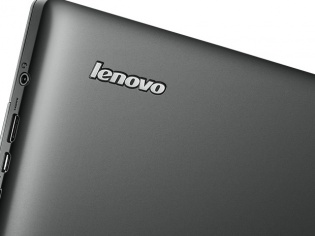-
Alnoor M Peermohamed
12:35 20th Mar, 2014
Lenovo's "Little" Shopping Spree Has Just Begun | TechTree.com
Lenovo's "Little" Shopping Spree Has Just Begun
The CEO stated that the company will continue to acquire other brands to boost its overall growth.

Lenovo's recent shopping spree may have put a $5.2 billion hole in its pocket, but the company hasn't put its chequebook away just yet. According to a techcrunch report, CEO of the Chinese PC giant on Tuesday said that it will continue to acquire companies to boost its overall growth.
Lenovo recently made headlines when it purchased Motorola Mobility from Google for $2.91 billion, soon after which it snatched up IBM's struggling server division for $2.3 billion. The company had made its entry into the big league following its purchase of IBM's PC business in 2005 for $1.2 billion.
Lenovo has a history of buying struggling businesses and turning their fortunes around to its favour. After taking over IBM's stagnant PC business, in just eight years Lenovo grew to become the largest PC maker after it overtook HP in 2013.
Now, witnessing the stagnation of the desktop and laptop business the company has taken to manufacturing mobiles in an unprecedented way. This is where Motorola Mobility fits in perfectly, not only giving Lenovo a portal into developed markets, but also to boost its own technological prowess.
Soon after the takeover of Motorola Mobility, Lenovo mentioned in a release that it would make the company profitable in four to six quarters. The company recently added that it hasn't planned any additional layoffs at Motorola, citing that the handset maker has already reduced its head count significantly over the past two years.
Lenovo's strength lies in its ability to identify brands with potential, while using its leadership position in its home market of China to drive growth. In addition, buying big brands such as Motorola and IBM give the company the leverage it needs to sell more devices, be it smartphones, tablets, laptops, PCs or servers in emerging markets.
- DRIFE Begins Operations in Namma Bengaluru
- Sevenaire launches ‘NEPTUNE’ – 24W Portable Speaker with RGB LED Lights
- Inbase launches ‘Urban Q1 Pro’ TWS Earbuds with Smart Touch control in India
- Airtel announces Rs 6000 cashback on purchase of smartphones from leading brands
- 78% of Indians are saving to spend during the festive season and 72% will splurge on gadgets & electronics
- 5 Tips For Buying A TV This Festive Season
- Facebook launches its largest creator education program in India
- 5 educational tech toys for young and aspiring engineers
- Mid-range smartphones emerge as customer favourites this festive season, reveals Amazon survey
- COLORFUL Launches Onebot M24A1 AIO PC for Professionals







TECHTREE